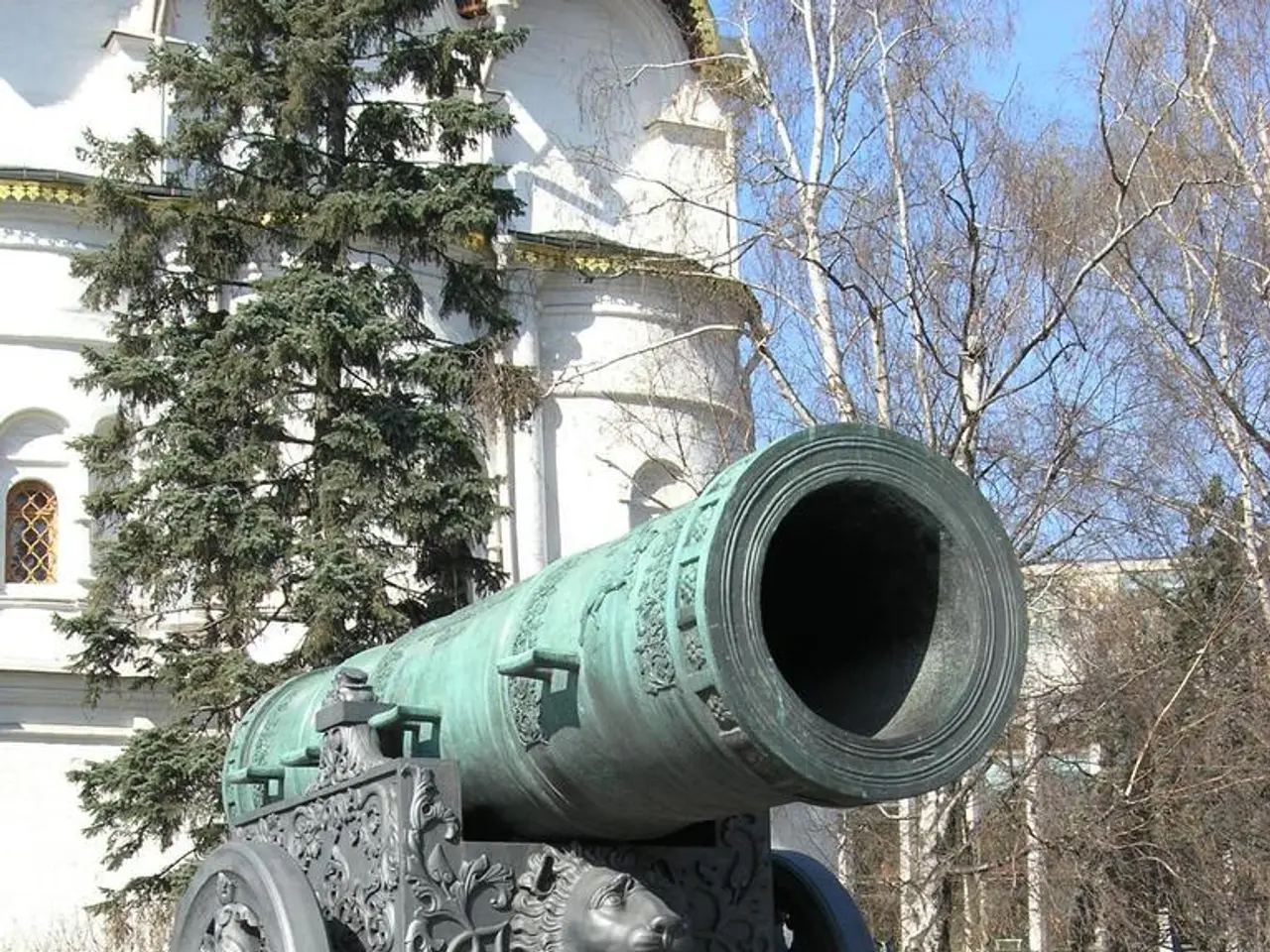Extreme warning signals raised by CDU politician: "Mob displaying anti-Semitic tendencies is gaining acceptance"
In the midst of ongoing tensions in Gaza, criticism is growing in Germany over the government's decision to suspend arms exports to Israel. The move, announced by Chancellor Friedrich Merz without broader party consultation, has sparked debate among politicians and the Central Council of Jews.
Roderich Kiesewetter, a CDU politician, has been vocal in his criticism, stating that Germany is bowing to dangerous Hamas propaganda. He believes that the arms export ban is a breach of state reason and a loss of credibility for Germany, as it undermines Israel's right to self-defense under international law.
Kiesewetter's statement further suggests that the traffic light government's course in the Middle East conflict is a "serious political and strategic mistake by Germany."
Josef Schuster, the Central Council President, shares similar sentiments. He views the embargo as a breach of the chancellor's solidarity statements and argues that Israel is under daily rocket fire. Denying it the ability to defend itself, he states, endangers its existence.
The Central Council of Jews in Germany is also criticizing the arms export ban, seeing it as problematic due to its implications on Jewish security and Germany's historical ties.
On the other hand, Vice Chancellor Olaf Scholz's ally, Vice Chancellor Robert Habeck (Green Party), and his deputy, Vice Chancellor Klingbeil, defend the arms export ban. Klingbeil calls for a ceasefire, hostage releases, and humanitarian aid in Gaza as urgent matters.
Meanwhile, Israeli Prime Minister Netanyahu has outlined five principles to end the war, including military control of Gaza and the return of all hostages. He also announced Israel's intention to militarily occupy Gaza and disarm Hamas.
The context is that Germany has historically been one of Israel's most steadfast allies, with substantial arms exports approved until recently. The suspension followed Israel's Security Cabinet endorsing intensified operations in Gaza, which raised international alarm and concerns about civilian harm and hostage safety.
The criticism stems from concerns that the arms export ban undermines Israel’s defense, damages Germany’s political credibility as an ally, and may inadvertently support violent actors by weakening Israel’s security posture. The CDU and Israel remain central topics of political debate in Germany.
- The debate in Germany over the suspension of arms exports to Israel, amid war-and-conflicts in Gaza, encompasses policy-and-legislation as politicians consider the implications of the embargo on Israel's self-defense under international law, Jewish security, and Germany's historical ties.
- The controversy surrounding the arms export ban in the context of the ongoing Gaza conflict has become a notable part of general-news, with politicians like Roderich Kiesewetter criticizing it as a breach of state reason, while others, like Vice Chancellor Robert Habeck and Vice Chancellor Klingbeil of the Green Party, defend the decision and emphasize the need for a ceasefire, hostage releases, and humanitarian aid in Gaza.







